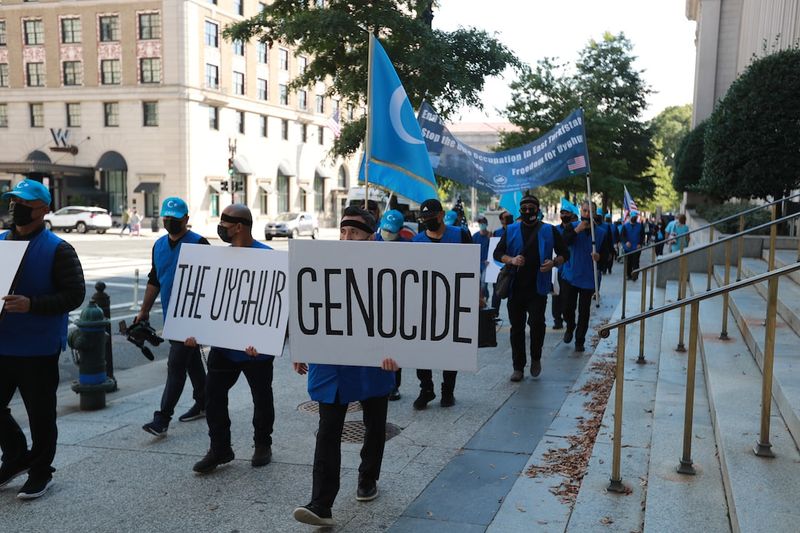Table of Contents
Unrelenting Crimes Against Humanity Targeting Uyghurs Forced Assimilation Continues a Year After Landmark Report on Xinjiang
Background
China‘s ongoing crimes against humanity targeting Uyghurs and other Turkic Muslims in the northwestern Xinjiang region have persisted a year after a damning report by the United Nations Office of the High Commissioner for Human Rights. The report, released on August 31, 2022, concluded that the Chinese government’s rights violations in Xinjiang may constitute crimes against humanity.
Continued Abusive Policies
Despite international condemnation and calls for action, Chinese officials have maintained their abusive “strike hard” policies, which include mass arbitrary detention, torture, enforced disappearances, mass surveillance, cultural and religious persecution, separation of families, forced labor, sexual violence, and violations of reproductive rights. These violations amount to crimes against humanity, according to Human Rights Watch.
While some “political re-education” camps may have closed, there has been no mass release from prisons, where half a million Turkic Muslims have been held since the crackdown began. Uyghurs abroad remain cut off from their family members, with many unsure if their loved ones are still alive.
The Chinese government has also intensified its efforts to forcibly assimilate Uyghurs, aiming to consolidate its control over Xinjiang. These efforts include requirements for various ethnic groups to fully embed into the Chinese nation, the “Sinicization” of Islam to align with socialist values, and increased cultural and ideological control over the region.
International Response
Foreign governments have condemned Beijing’s policies in Xinjiang and have imposed targeted sanctions on Chinese government officials, agencies, and companies implicated in rights violations. However, there is a pressing need for stronger, coordinated action to advance accountability.
Human Rights Watch has called on the international community to:
- Work toward the adoption of a UN resolution to establish an investigative mechanism that can identify those responsible for violations in Xinjiang and make recommendations for accountability.
- Improve efforts to document the number and identities of those detained, imprisoned, and forcibly disappeared in Xinjiang, with the goal of reuniting families.
- Impose targeted sanctions on Chinese officials involved in serious abuses in Xinjiang.
- Consider pursuing criminal cases using the concept of “universal jurisdiction,” which allows domestic judicial systems to investigate and prosecute certain grave crimes, such as torture, regardless of where they were committed.
- UN High Commissioner for Human Rights Volker Türk should provide updates to the UN Human Rights Council on the situation in Xinjiang and present an action plan for advancing accountability.
- Initiate a high-level, coordinated effort focused on finding and advocating for the release of those arbitrarily detained in Xinjiang.
Conclusion
It is crucial for concerned governments and the UN rights office to take decisive action to hold the Chinese government accountable for its grave international crimes. This anniversary of the Xinjiang report serves as an opportunity to send a clear message that Beijing will not evade justice, and to announce measures that will improve the lives of Uyghurs.

<< photo by Kuzzat Altay >>
The image is for illustrative purposes only and does not depict the actual situation.
You might want to read !
- Kosovo’s Failures: A Systemic Neglect of Domestic Violence Victims
- Investigating the Challenges Faced by LGBTQ+ Individuals in Nigeria
- The Urgency of COP28: Advocating for the Release of an Activist in the UAE
- China’s Response to the Xinjiang Report: A Wake-Up Call to Global Action
- Is Saudi Arabia’s Use of the Death Penalty for Tweets a Justifiable Response to Cyber Dissent?
- Democracy’s Hope Rising: The Courageous Struggle of Vietnam’s Free Activists